Billy Joel’s ‘Live at Yankee Stadium’ Hits Some Homers
Billy Joel had already recorded nearly all his best-known songs by June 1990 when he performed two shows at New York’s Yankee Stadium. A native of the state and a serious baseball fan (who, 18 years later, would also appear at Shea Stadium), Joel clearly regarded these concerts as special. That they were, thanks to well-chosen setlists, Joel’s enthusiastic performances, a gargantuan audience of adoring fans, and a first-rate backup band. (Note, though, that unlike the Shea gig, which added such stars as Paul McCartney, this one featured no guest artists aside from violinist Lisa Germano, who performed on “The Downeaster ‘Alexa.'”)
A film of the concert – which incorporates two brief interview segments and was previously available only as a VHS videotape – has been significantly upgraded for the new Live at Yankee Stadium. The package pairs a high-definition, surround-sound Blu-ray video with a newly mixed and mastered two-CD audio recording of the show.
The Blu-ray, though marred somewhat by choppy video editing, has a lot to recommend it, including an exuberant, previously unseen version of “Uptown Girl,” while the CDs – which incorporate a much longer setlist – introduce 11 previously unreleased performances. The package comes with a 28-page booklet that offers new liner notes by Rolling Stone’s David Fricke.
The video and CDs share lots of high points – “A Matter of Trust,” “New York State of Mind,” “We Didn’t Start the Fire,” and “Scenes from an Italian Restaurant,” to name a few. But they also both feature a few of Joel’s less-memorable numbers, such as “Storm Front,” “That’s Not Her Style,” and “Shameless.” It’s unfortunate that the Blu-ray includes those while eschewing some well-known tunes that the CDs embrace, such as “Big Shot,” “You May Be Right,” “Allentown,” and “An Innocent Man.” It’s also unfortunate that the audio discs are missing the high-octane cover of the Isley Brothers’ “Shout, Pts. 1 & 2” that’s featured in the video.
At least both versions of the show end with a fine rendition of Joel’s signature song and frequent concert closer: “Piano Man,” the 1973 number that’s based on his real-life, pre-fame gig as an L.A. lounge singer whose audiences would “sit at the bar and put bread in my jar.” Performing this tune in the city of his birth as more than 50,000 admirers sing along, Joel exudes a sense of triumph and validation – and understandably so.
(Read about my 1974 encounter with Joel here.)
An Expanded Version of a John Mellencamp Standout
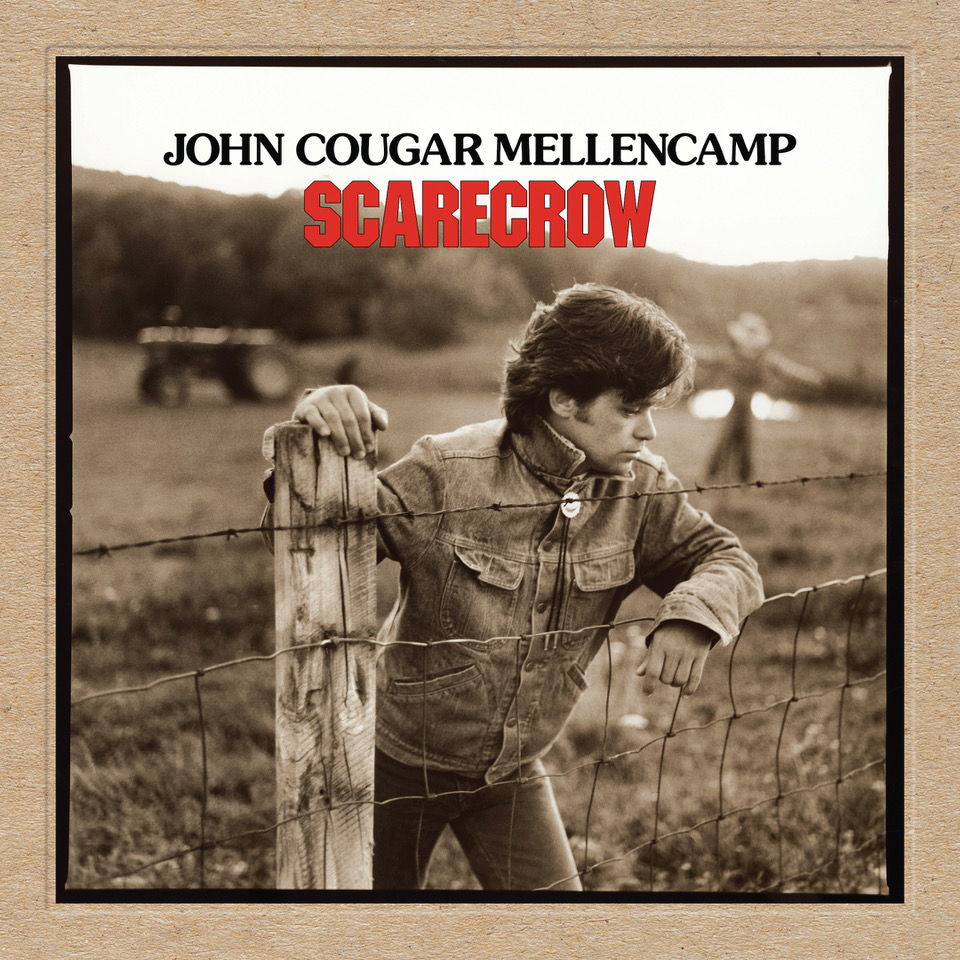
By the time he issued Scarecrow, his eighth studio album, in 1985, John Mellencamp didn’t need a career boost: he’d already scored a No. 1 LP with 1982’s American Fool, made it to No. 9 with 1983’s Uh-Huh, and enjoyed Top 10 singles with “Hurts So Good,” “Crumblin’ Down,” “Pink Houses,” and the chart-topping “Jack & Diane.”
That said, Scarecrow did a lot to reinforce Mellencamp’s position as a major artist. Featuring his most sophisticated writing to date, it focuses largely on the ways in which the American dream has fallen short and spawned three Top 10 singles: “R.O.C.K. in the U.S.A.,” which is subtitled “A Salute to 60s Rock”; the effusive and distinctive rocker “Lonely Ol’ Night,” which namechecks the Four Tops’ “Standing in the Shadows of Love”; and “Small Town,” a clearly autobiographical number that extolls the virtues of living you know where.
Other highlights include “Rain on the Scarecrow,” about the struggles of farmers, and the wistful “Minutes to Memories,” which sounds like a precursor to 2008’s “Longest Days” and includes lines like “Days turn to minutes and minutes to memories / Life sweeps away the dreams that we have planned.”
This generally excellent albeit somewhat uneven album is even better in a new two-CD “deluxe edition” that features remixed, remastered audio and adds a dozen bonus tracks, including a few unreleased songs and versions. (A “super deluxe” edition adds a half-speed mastered vinyl LP, a vinyl single, and an audio Blu-ray that incorporates Atmos and hi-res stereo mixes of the original LP.) Among the bonus tracks: Mellencamp’s excellent acoustic version of “Small Town”; a new mix of his terrific cover of the Drifters’ “Under the Boardwalk,” which was a 1986 single as well as the B-side of the “R.O.C.K.” single; and a brassy reading of “James Brown’s “Shout.”
Also Noteworthy
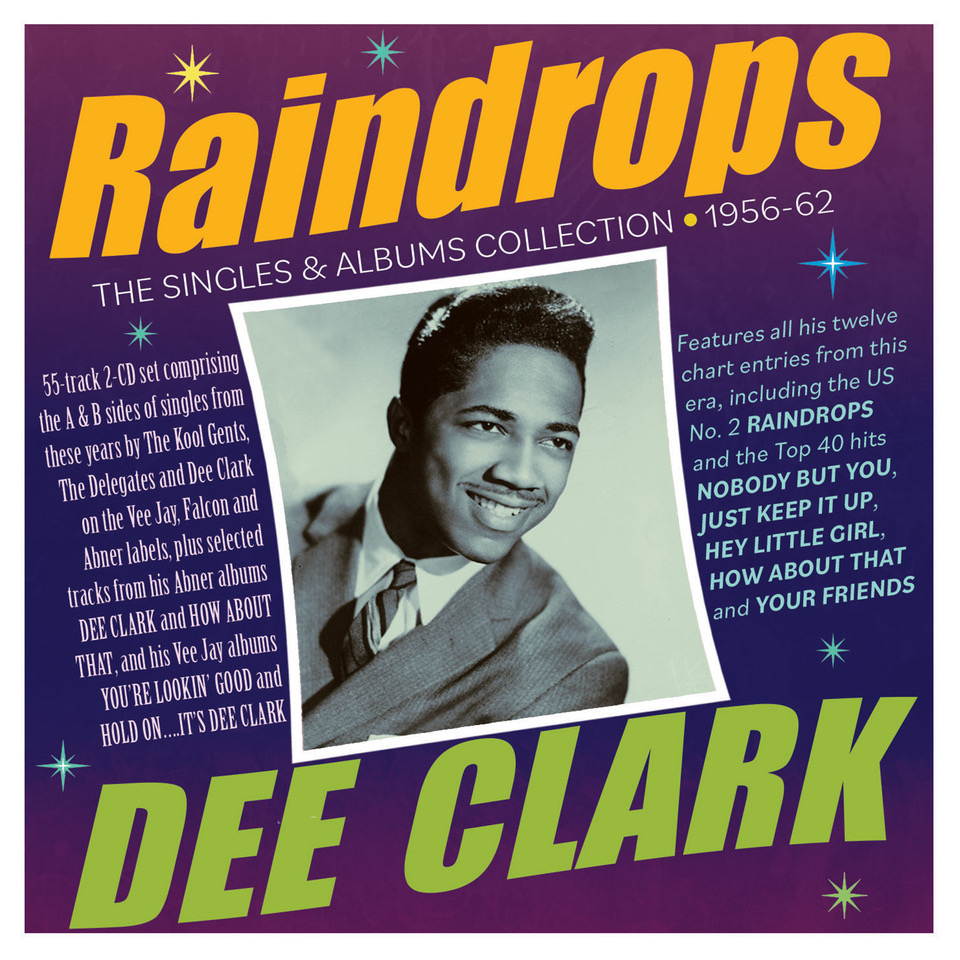
Dee Clark, Raindrops: The Singles & Albums Collection 1956–62. Between January 1959 and May of the following year, Dee Clark racked up half a dozen Top 40 hits, including “Raindrops,” which made it all the way to No. 2. The chart successes stopped after 1960, however, and Clark’s story had a sad ending: after struggling to make ends meet on the oldies circuit, he experienced a stroke and then congestive heart failure and died at age 52. Today, it’s safe to say, most music fans have no idea who he was.
That’s unfortunate because Clark was a major talent with an arresting tenor and the ability to deliver everything from doo-wop and rollicking R&B to pop ballads. There’s plenty of evidence of that on this 55-track, two-CD collection, which covers his most fertile period but has one significant and inexplicable flaw: its title cut is not the hit single, which opens with thunderstorm sound effects, but an alternate and inferior recording of the song (though the liner notes accurately describe the hit rendition).
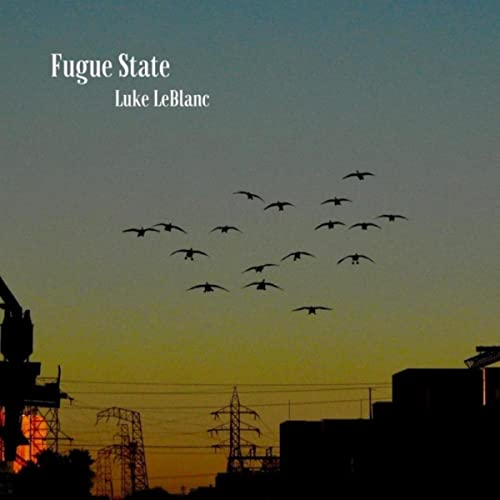
Luke LeBlanc, Fugue State. This folk-based fourth studio album from 26-year-old Minneapolis singer, songwriter, and multi-instrumentalist Luke LeBlanc hangs together beautifully despite a wide range of styles and influences. LeBlanc’s vocal on “Walking Days” will remind you of Guy Clark while the poppy “Take Your Mind Off It” bears comparison to Starbuck; other numbers variously sound redolent of Jesse Winchester, John Prine, and John Hiatt.
Well produced by fellow Minneapolis musician Erik Koskinen (who filled the same role for LeBlanc’s third LP), Fugue State features pedal steel, clavinet, violin, guitar, banjo, keyboards, and, on the moody “When I Walk with You,” even some prominent sax. The lilting, richly textured music and LeBlanc’s warm vocals are affecting, and so are his lyrics, which manage to be cliché-free and fresh-sounding while addressing such well-covered subjects as love, loss, and a search for inner peace. One suspects other artists will want to interpret many of these numbers and also that LeBlanc’s versions will be hard to beat.
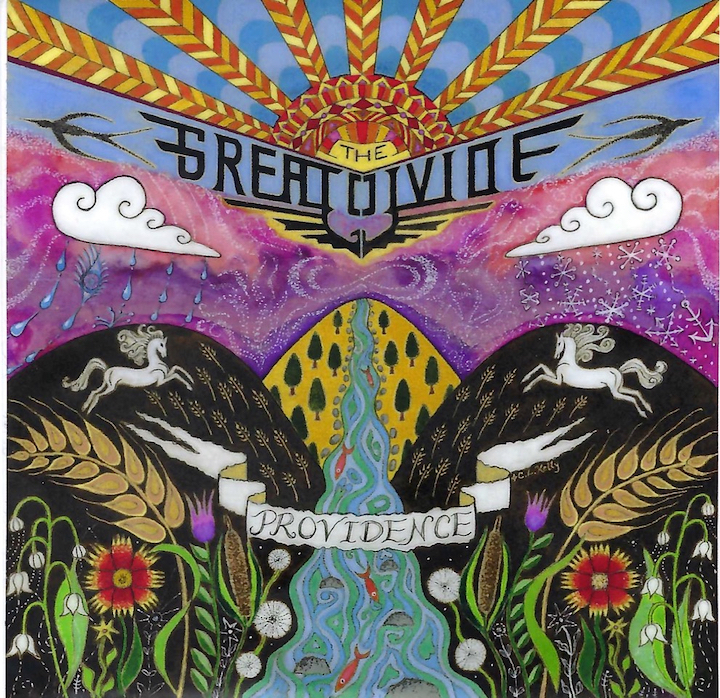
The Great Divide, Providence. In the late 1990s and early 2000s, the Stillwater, Oklahoma–based Great Divide released five albums and played hundreds of concerts, achieving considerable prominence on the so-called Red Dirt country music scene. But singer/songwriter Mike McClure left the group in 2003, and the Great Divide broke up two years later. Providence is its first new studio album in 20 years.
The news is all good: McClure is back on board – he wrote every song on this CD – and sounds fully committed. In fact, he describes the opening track, “Wrong Is Overrated,” as “an admission of my part of the blame on what led to the breakup…I made a mess of things—too much booze and too many drugs mixed with ego and frustration.” Not anymore: these relentlessly upbeat, beautifully sung and played tunes are consistently infectious and evidence a band whose members have achieved something close to perfect harmony. “We all know the time goes slipping away,” they sing at one point. True, and this record goes a long way toward making up for the years they’ve lost.
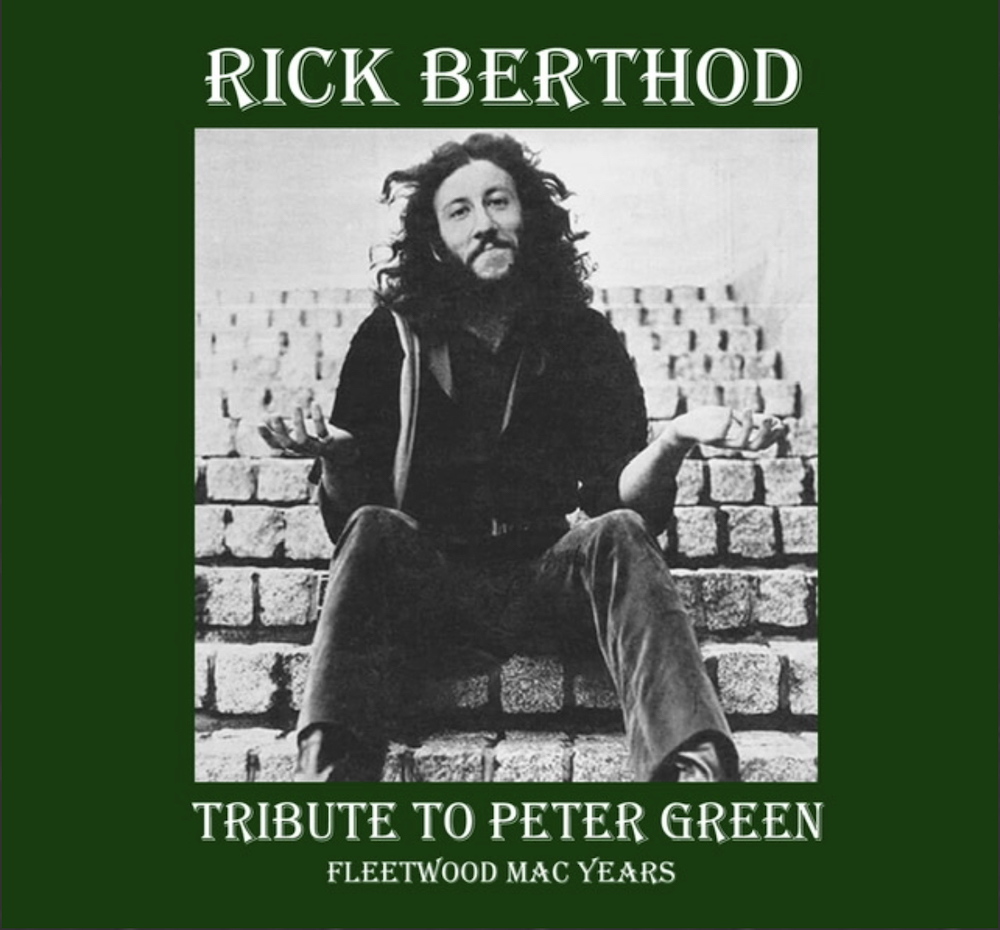
Rick Berthod, Tribute to Peter Green. On this ninth album, the follow-up to 2020’s Peripheral Visions, guitarist and singer Rick Berthod tips a hat to the late Peter Green, who left John Mayall’s Bluesbreakers to found the original Fleetwood Mac. Accompanied on most of the tracks by a bassist, a drummer, and a keyboardist, the West Coast–based Berthod serves up 10 blues songs that Green wrote for the Mac between 1967 and 1970. Among them are “Black Magic Woman,” “Need Your Love So Bad,” and “Oh Well.”
The original versions (some of which you’ll find on Fleetwood Mac’s highly recommended The Complete Blues Horizon Sessions) are superlative, but so are Berthod’s readings, which capture Green’s spirit while adding something fresh. Particularly impressive is the guitar work by Berthod, whose influences range from B.B. King and Albert Collins to rockers like John Mayall and Eric Clapton.
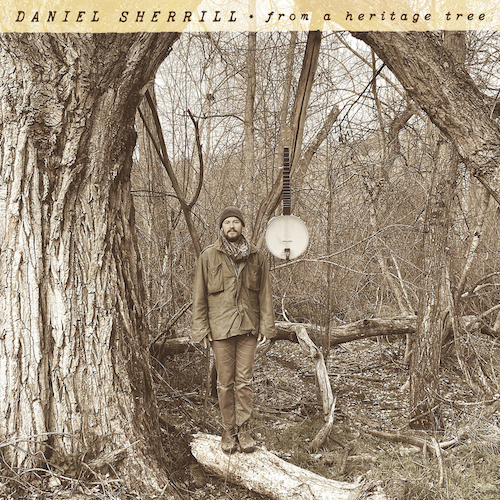
Daniel Sherrill, From a Heritage Tree. Daniel Sherrill has been a multi-instrumentalist and vocalist for Ashland, Oregon folk groups Hollis Peach and Patchy Sanders, but on From a Heritage Tree, he sticks to banjo, employs no accompanists, and never sings a word. The minimalist result is a consistently engaging collection of nine traditional tunes – all originally written for fiddle – that show off Sherrill’s virtuoso fretwork.
The album name, incidentally, refers to the banjo, which was built from a 275-year-old walnut tree. Sherrill received the instrument as a gift early in the pandemic and employs it on the album. As his website notes, “The tree was already 85 years old when some of these songs began being played.”
Jeff Burger’s website, byjeffburger.com, contains five decades’ worth of music reviews, interviews, and commentary. His books include Dylan on Dylan: Interviews and Encounters, Lennon on Lennon: Conversations with John Lennon, Leonard Cohen on Leonard Cohen: Interviews and Encounters, and Springsteen on Springsteen: Interviews, Speeches, and Encounters.



